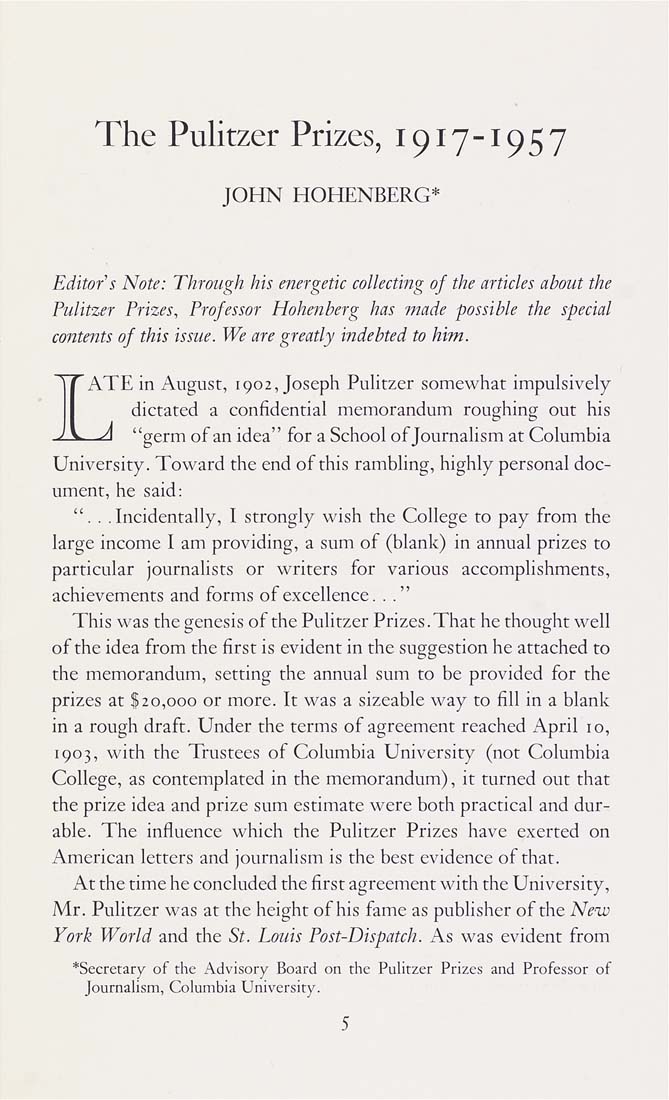Columbia Library columns (v.6(1956Nov-1957May))
(New York : Friends of the Columbia Libraries. )
|
||
|
|
|
|
| v.6,no.3(1957:May): Page 5 |

The Pulitzer Prizes, 1917-1957 JOHN HOHENBERG"^ Editor's Note: Through his energetic collecting of the articles about the Pulitzer Prizes, Professor Hohenberg has made possible the special contents of this issue. We are greatly indebted to him. IAl ATE in August, 1902, Joseph Pulitzer somewhat impulsively dictated a confidential memorandum roughing out his A "germ of an idea" for a School of Journalism at Columbia University. Toward the end of this rambling, highly personal doc¬ ument, he said: ". . .Incidentally, I strongly wish the College to pay from the large income I am providing, a sum of (blank) in annual prizes to particular journalists or writers for various accomplishments, achievements and forms of excellence. . ." This was the genesis of the Pulitzer Prizes. That he thought well of the idea from the first is evident in the suggestion he attached to the memorandum, setting the annual sum to be provided for the prizes at St20,000 or more. It was a sizeable way to fill in a blank in a rough draft. Under the terms of agreement reached April 10, 1903, with the Trustees of Columbia University (not Columbia College, as contemplated in the memorandum), it turned out that the prize idea and prize sum estimate were both practical and dur¬ able. The influence which the Pulitzer Prizes have exerted on American letters and journalism is the best evidence of that. At the time he concluded the first agreement with the University, Mr. Pulitzer was at the height of his fame as publisher of the New York World and the St. Louis Post-Dispatch. As was evident from *Secretary of the Advisory Board on the Pulitzer Prizes and Professor of Journalism, Columbia University. |
| v.6,no.3(1957:May): Page 5 |







